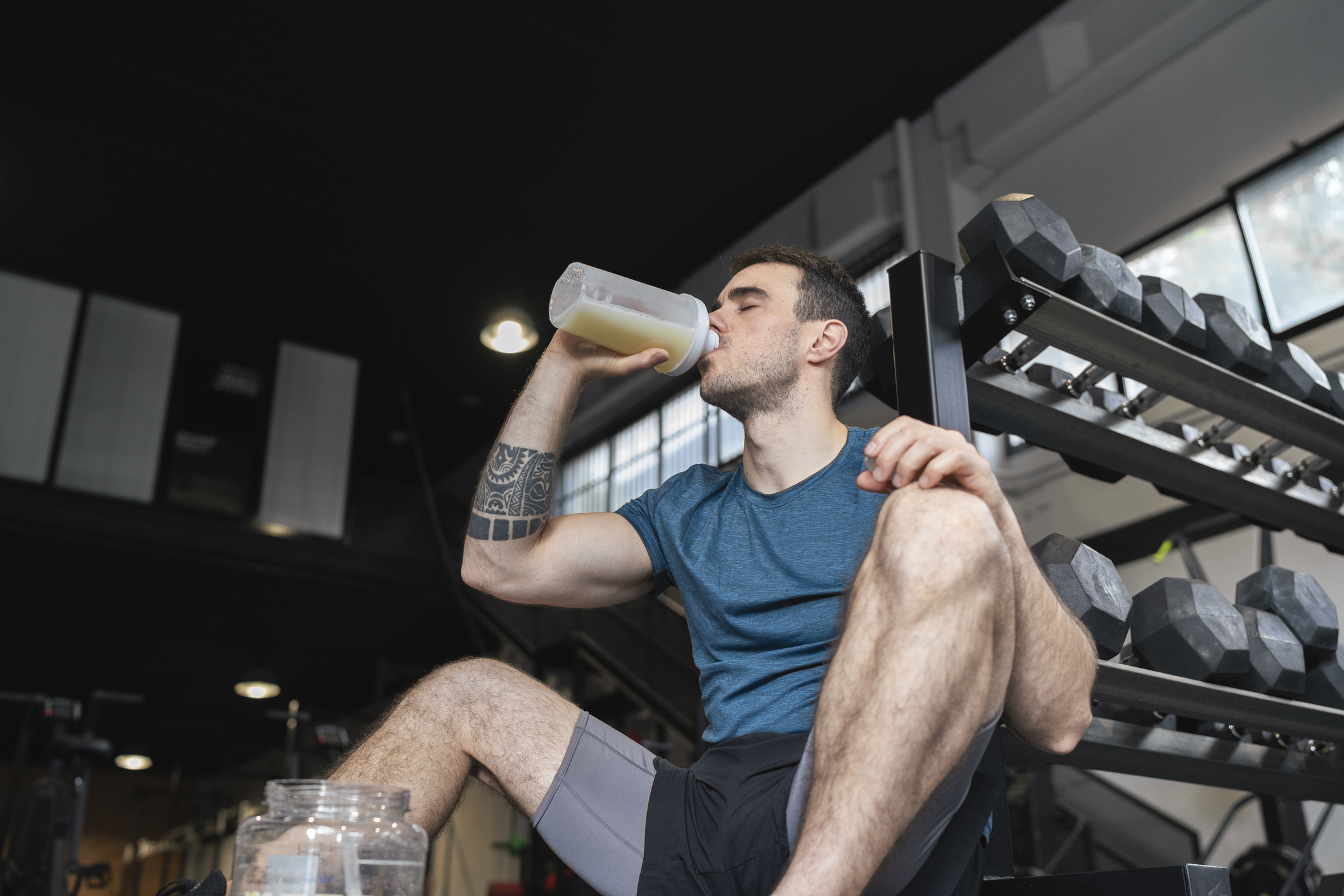People drink protein shakes for various reasons. They could be doing so to manage their weight, build muscle, aid recovery after exercise, or enhance performance. In addition to gym enthusiasts and athletes, anyone looking to increase their protein intake for general health and wellness can include protein shakes in their diet. As a trainer and nutritionist, I strongly recommend my clients include protein shakes in their routine to make hitting their fitness goals that much easier.
No matter your reason for consuming protein shakes, you may want to take timing into consideration. Is there an optimal time to drink protein shakes for the most gains? If so, when should you drink a protein shake for the best results? Read on to learn more!
What are the benefits of protein shakes?

Do you ever wonder why nearly every diet plan puts so much emphasis on protein? The macronutrient offers numerous benefits for everyone, even those who are not fitness pros. Some of these benefits include the following:
Supports weight loss efforts
Protein increases satiety, making you stay full for longer. This is partly because protein affects some hormones that control fullness and hunger signals in the body. These include cholecystokinin and glucagon-like peptide-1 (GLP-1), and they are responsible for digestion and fullness. Another hormone protein curtails is ghrelin, which is what makes you feel hungry. A controlled appetite helps you consume fewer calories, making you lose weight faster.
Aids in muscle growth and recovery
Protein sources are popularly known as bodybuilding foods. When you consume protein shakes, the protein breaks down into amino acids, which your body needs to build and repair muscle tissue. Protein also helps with healing injuries and speeding up recovery after exercise.
In addition, protein is effective in preserving muscle mass upon weight loss — it can help you lose fat while maintaining your current muscle mass. A 2016 study on older adults showed that ‘’Older adults retained more lean mass and lost more fat mass during weight loss when consuming higher protein diets.’’
Promotes bone health
Adequate protein intake helps develop and maintain bone structures, as protein actually makes up about half of a bone’s volume. It also fosters collagen production, another significant component of bones. So, protein shakes provide protein for stronger and healthier bones that are resistant to fractures and stress in both older adults and young people.
How to optimize your protein shakes

Generally, to get the most out of your protein shakes, consider using water instead of any other liquid. Water will deliver protein faster to your body. However, if you are trying to put on size, utilizing other liquids like coconut milk can help contribute to your calorie surplus. You can also include ingredients like peanut butter, avocado, and oats for additional calories.
For weight loss, you want to keep the calories of your protein shakes minimal to help you stay in a calorie deficit. The easiest way to do this is to simply mix your protein powder with water. However, if you are turning your protein shake into a meal, you could also include low-calorie fruits and veggies to enjoy additional nutrients.
Should you drink a protein shake every day?

Unless you have a digestive problem or food sensitivity, it’s okay to drink protein shakes every day. They will help you reach your protein goal and can contain other nutrients such as various vitamins and minerals. However, you don’t want to rely only on protein shakes for protein — be sure to consume plenty of whole food sources as well.
When should you drink a protein shake?

A 2017 study suggests there is no difference between the effects of pre- and post-workout protein intake. The study was done on 21 resistance-trained men divided into two groups. One group took protein supplements before a workout, and the other took them after a workout.
When your body is in an anabolic state after exercise, it is refueling and rebuilding all the worn-out muscles and needs enough protein to do this effectively. But when your body is in a catabolic state during exercise, you are breaking down and stressing your muscles, and you need energy.
So, it is best to take your protein shakes when you feel you need it most. Pre-workout will give you energy and a performance boost, while post-workout will help with recovery. The choice is yours.
Alternative protein sources to support your health goals

Great alternatives to protein shakes include animal protein sources like eggs, fish, meat, dairy, and poultry. You could also try some plant-based proteins like soy, nuts, legumes, and seeds. All these protein sources contain a variety of amino acids that are just as beneficial (if not more) as your protein shakes.
Frequently asked questions

Is it better to drink a protein shake before or after a workout?
You can drink a protein shake before a workout to boost energy and performance. You can also drink a protein shake after a workout to foster recovery, repair worn-out muscles, and reduce pain. It doesn’t matter when you drink it as long as you are meeting your protein requirements every day.
Is it better to drink a protein shake in the morning or at night for weight loss?
For weight loss, it is better to take protein shakes in the morning because you need to stay full during the day in order not to consume too many calories. However, if you find yourself going to bed hungry, try having a protein shake before bed to help with satiety.
Will I lose weight with protein shakes?
Protein shakes can increase your protein intake, making you feel fuller for longer. If this leads you to consume fewer calories, this can result in weight loss.




